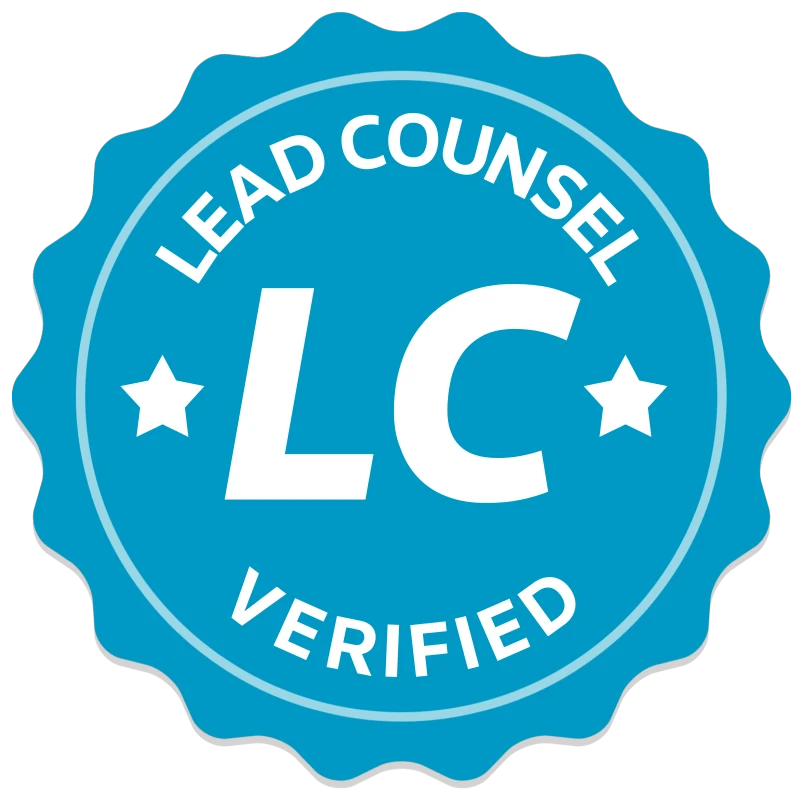
Introduction
If you’ve been injured in an accident due to someone else’s negligence, finding a competent personal injury lawyer is crucial. Dealing with legal matters can be overwhelming, and having the right attorney by your side can make a significant difference in the outcome of your case. But with so many options available, how do you go about finding the best personal injury lawyer near you? In this article, we’ll walk you through the process step by step, helping you make an informed decision and ensuring you get the justice and compensation you deserve.

Proudly Serving Duluth and All of Georgia Contact us to start your recovery! Explore Our Practice Areas

What is Personal Injury Law?
First and foremost, let’s understand what personal injury law entails. Personal injury law covers legal disputes that arise when an individual suffers harm or an injury due to someone else’s negligence or intentional actions. Common cases include car accidents, slip and falls, medical malpractice, and product liability, among others.
Why Do You Need a Personal Injury Lawyer?
Navigating the legal complexities of personal injury cases can be daunting for someone without legal expertise. A skilled personal injury lawyer not only understands the intricacies of the law but also advocates for your rights and fights for fair compensation on your behalf. They handle the paperwork, negotiate with insurance companies, and build a strong case to strengthen your chances of winning.
Click to contact our personal injury lawyers today

What is an Injury Claim?
An injury claim is a legal process in which an individual seeks compensation for injuries or damages suffered as a result of someone else’s negligence or intentional actions. It typically involves filing a lawsuit against the responsible party, such as an individual, business, or organization, seeking monetary compensation for medical expenses, loss of income, pain and suffering, and other damages. The injured person, known as the plaintiff, must provide evidence to prove the liability of the defendant to win the claim and receive compensation.
Complete a Free Case Evaluation form now
What is a Personal Injury Claim?
A personal injury claim refers to a legal process where an individual seeks compensation for the physical, emotional, or financial damages they have suffered due to someone else’s negligence or intentional misconduct. When a person is injured or harmed in an accident, such as a car crash, slip and fall incident, or medical malpractice, they may file a personal injury claim against the responsible party. The claim usually aims to obtain monetary compensation to cover medical expenses, lost wages, pain and suffering, and other related damages. The process may involve negotiations or litigation, and the outcome will depend on the strength of the evidence and legal arguments presented.
Where to Begin Your Search for a Personal Injury Attorney
Starting your search for a personal injury lawyer can seem overwhelming, but the process can be simplified. Begin by asking for recommendations from friends, family, or colleagues who may have had positive experiences with local attorneys. Their first-hand reviews can be valuable.
Additionally, make use of online resources and legal directories. These platforms provide extensive lists of personal injury lawyers in your area, along with essential details such as contact information and areas of expertise.
Researching Local Law Firms for a Personal Injury Lawyer Near You
Once you have a list of potential lawyers, dig deeper into their backgrounds. Look for reputable law firms that have experience in handling personal injury cases. Check their websites for testimonials and client reviews to get an idea of their track record.
Finding a Law Office or Law Group
There are several law offices and law groups available. However, without mentioning a specific location or specialization, it’s challenging to provide a specific recommendation. It would be best to consult local directories, search engines, or legal referral services to find a suitable law office or law group based on your specific needs and location. Additionally, seeking recommendations from friends, family members, or other professionals may also help you find a reputable law office or law group.
What is a Personal Injury Case?
A personal injury case is a legal dispute that arises when one person suffers harm or injury due to the negligence or intentional act of another person or entity. The injured party, known as the plaintiff, seeks to hold the responsible party, known as the defendant, liable for their injuries and seek compensation for damages such as medical expenses, lost wages, pain and suffering, and other related losses. Personal injury cases can arise from various incidents such as car accidents, slip and falls, medical malpractice, product defects, workplace accidents, and more.
Filing a Personal Injury Case
You should file a personal injury claim when you have been injured due to someone else’s negligence or intentional wrongdoing. This can include accidents, medical malpractice, premises liability, product defects, assault, and more. It is important to file a personal injury claim within the applicable statute of limitations, which varies by jurisdiction. It is recommended to consult with a personal injury attorney to understand your rights and determine the appropriate time to file your claim.

Types of Personal Injury Cases
There are many types of personal injury cases, but some of the most common include, Car accidents: These cases involve injuries sustained in motor vehicle accidents, including collisions between cars, trucks, motorcycles, or pedestrians. Slip and fall accidents: These cases arise when an individual is injured due to a hazardous or dangerous condition on someone else’s property, such as a wet floor, uneven pavement, or inadequate lighting. Medical malpractice: These cases involve injuries caused by healthcare professionals or facilities, such as surgical errors, misdiagnosis, medication errors, or negligent treatment. Workplace accidents: These cases occur when employees are injured or killed on the job due to unsafe working conditions, equipment malfunction, or negligence by employers or co-workers. Product liability: These cases arise when a person is injured by a defective or dangerous product due to manufacturing defects, design flaws, or insufficient instructions or warnings. Dog bites: These cases occur when an individual is attacked or bitten by a dog, often due to the negligence or recklessness of the owner. Assault and battery: These cases involve intentional acts of physical violence that cause injuries, such as fights, domestic violence incidents, or assault by security personnel. Wrongful death: These cases arise when a person dies due to the negligent, reckless, or intentional act of another person or entity, and the surviving family members seek compensation for their loss. It is important to note that personal injury cases can vary depending on the jurisdiction and specific circumstances, and this list is not exhaustive. Consulting with a personal injury attorney can provide a better assessment of the types of cases that may apply to your situation.
Check for Credentials and Specialization
Before finalizing a lawyer, ensure they are licensed to practice law in your state and are in good standing with the bar association. Furthermore, focus on their specialization. Opt for a lawyer whose primary focus is personal injury law rather than a general practitioner.
Initial Free Consultations
Most of Duluth personal injury lawyers offer free initial consultations. Take advantage of these meetings to discuss your case with potential attorneys. Prepare a list of questions to ask them about their experience, strategy, and previous success in handling similar cases.
Assessing Communication and Compatibility
Clear communication between you and your lawyer is essential throughout your case. During the consultation, gauge how well the lawyer listens to your concerns and whether they explain legal matters in a way you can understand. Personal compatibility is crucial too, as you’ll be working closely with this individual for a significant duration.
Fee Structures and Payment
Discuss the fee arrangements during the consultation. Personal injury lawyers typically work on a contingency fee basis, which means they only get paid if you win your case. Clarify the percentage they’ll take from your settlement or award. Alternatively, some may charge an hourly rate, so be sure to understand the payment terms.

Local Bar Association Referrals
Contact your local bar association for additional referrals. Bar associations are reliable sources that can provide you with reputable lawyers in your area. They maintain records of any disciplinary actions taken against lawyers, ensuring you hire someone with a clean professional record.
Conducting Background Checks
Before making your final decision, run a background check on the lawyers you are considering. This involves looking into their history to ensure there are no red flags. Verify their education, experience, and any awards or recognition they have received.
Importance of Location
When choosing a personal injury lawyer, consider their location. Opting for a local attorney has its advantages, as they are familiar with the local court system and may have established relationships with judges and other legal professionals.
Client Success Stories
Research the success stories of potential lawyers. Look for their track record of settlements and verdicts won for clients. This information can give you insight into their ability to handle cases successfully.
Making the Final Decision
After conducting thorough research and consultations, it’s time to make your decision. Weigh the pros and cons of each option and trust your instincts. Choose the lawyer whom you believe will best represent your interests and provide you with the support you need.

Conclusion to Finding Personal Injury Lawyers
Finding a personal injury lawyer near you might seem like a daunting task, but with the right approach, it can be more manageable. Remember, your lawyer is your advocate, and having a skilled and reliable professional on your side can significantly impact the outcome of your case. Take the time to research, meet with potential lawyers, and make an informed decision to protect your rights and secure fair compensation.
FAQs (Frequently Asked Questions)
1. How much does it cost to hire a personal injury lawyer? The cost of hiring a personal injury lawyer varies and depends on the fee structure they use. Many personal injury lawyers work on a contingency fee basis, meaning they only get paid if you win your case.
2. What compensation can I expect from a personal injury claim? The compensation you receive from a personal injury claim depends on various factors, such as the severity of your injuries, medical expenses, lost wages, and pain and suffering.
3. How long does it take to settle a personal injury case? The time it takes to settle a personal injury case varies depending on the complexity of the case and negotiations with insurance companies or the opposing party. Some cases may settle within a few months, while others can take years.
4. Can I negotiate the lawyer’s fees? Yes, you can often negotiate the lawyer’s fees, especially if they are working on an hourly rate basis. However, remember that an experienced lawyer with a successful track record may be worth the investment.
5. What if I can’t afford a personal injury lawyer? If you can’t afford a personal injury lawyer, consider seeking legal aid or pro bono services in your area. Some law firms and organizations provide free legal assistance to individuals in need.
Call or text 404-951-3513 or complete a Free Case Evaluation form









